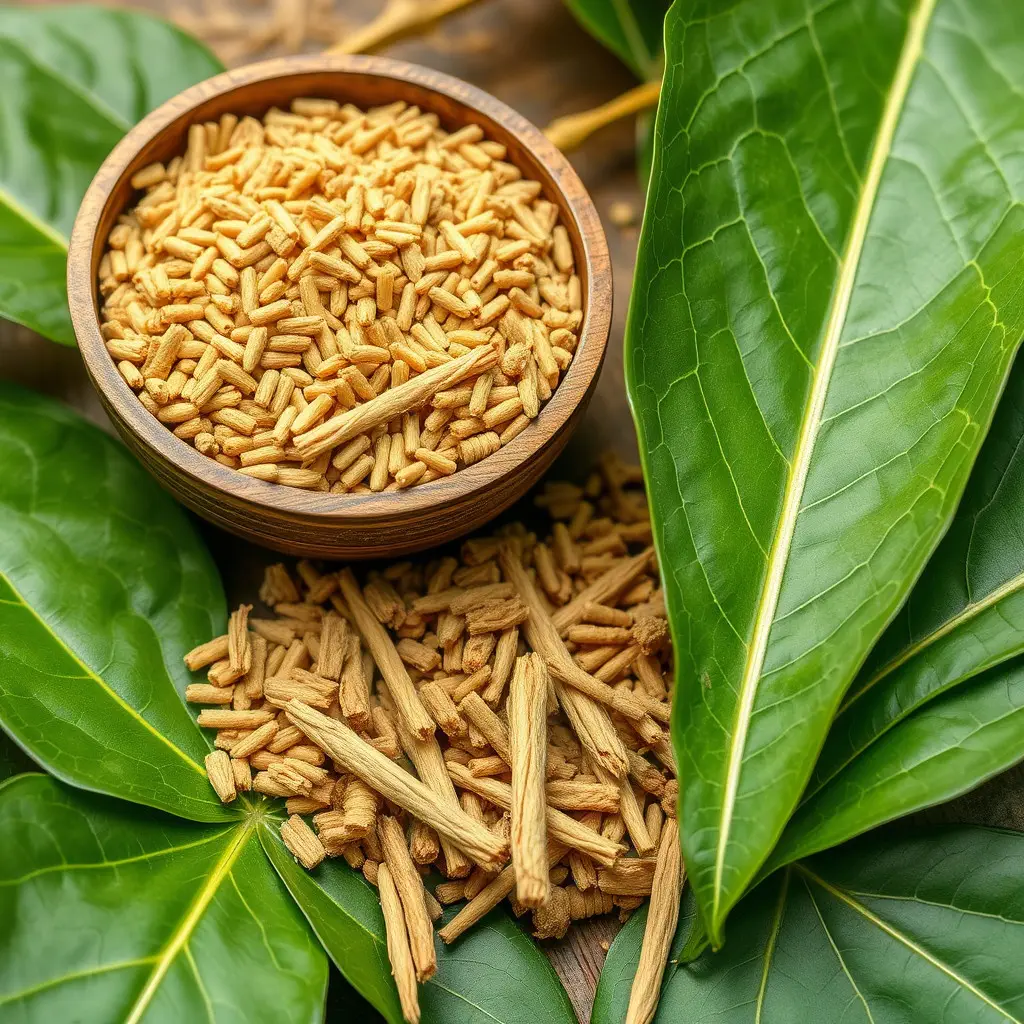Muscle soreness can significantly impact daily life, and some individuals explore natural supplements like kratom for relief due to its analgesic effects from alkaloids like mitragynine and 7-hydroxymitragynine. Kratom interacts with opioid receptors to potentially reduce pain perception. However, its efficacy and safety are subjects of ongoing scientific scrutiny due to reported side effects such as nausea, constipation, and the risk of psychological dependencies. Concerns about kratom's impact on hair health have been raised, with some anecdotal reports suggesting it may cause hair loss. This claim is under investigation, considering how kratom alkaloids might affect hormones related to hair follicle health. Given the potential risks and benefits, individuals interested in using kratom should consult healthcare professionals and consider evidence-based alternatives for muscle recovery and pain relief. The scientific community continues to study kratom's long-term effects, emphasizing caution and a well-informed decision-making process regarding its use, particularly with regard to the question of whether kratom causes hair loss.
Muscle soreness can be a significant impediment to an active lifestyle, often limiting one’s range of motion and daily activities. Exploring natural remedies for this discomfort, interest in kratom—a botanical supplement—has grown, particularly among those who prefer alternatives to conventional pain medication. This article delves into how kratom can offer relief from muscle soreness, examining its mechanisms and potential side effects, including addressing the common concern: does kratom cause hair loss? We will explore the multifaceted role of kratom in alleviating muscle pain, ensuring a comprehensive understanding of its impact on overall well-being.
- Understanding Muscle Soreness Relief Through Kratom Use
- The Role of Kratom in Alleviating Muscle Pain and Its Mechanisms
- Addressing Concerns on Kratom's Side Effects, Including Its Impact on Hair Health
Understanding Muscle Soreness Relief Through Kratom Use

Muscle soreness can be a debilitating condition, often resulting from intense physical activity or certain medical conditions. Individuals seeking relief may turn to natural supplements like kratom, which has garnered attention for its potential analgesic properties. Kratom, derived from the leaves of Mitragyna speciosa, interacts with the body’s opioid receptors, which can help alleviate pain. The alkaloids present in kratom, particularly mitragynine and 7-hydroxymitragynine, are believed to contribute to its pain-relieving effects. However, it is crucial to approach the use of kratom with caution, as its efficacy and safety for muscle soreness relief have not been fully established by scientific research.
While some anecdotal evidence suggests that kratom can effectively manage muscle soreness, it’s important to consider other aspects of kratom use. Users should be aware of the potential side effects, which can include nausea, constipation, and psychological dependencies. Additionally, there is a growing concern regarding the impact of kratom on hair health; specifically, does kratom cause hair loss? While this remains an area of investigation, it is prudent to consider that substances affecting opioid receptors can sometimes have systemic effects that might impact hair growth. Those considering kratom for muscle soreness relief should weigh the potential benefits against the possible risks and consult with a healthcare professional before incorporating it into their wellness regimen. It is also advisable to explore other evidence-based methods for muscle recovery and pain management.
The Role of Kratom in Alleviating Muscle Pain and Its Mechanisms

Kratom, a plant originating from Southeast Asia, has been traditionally used for its medicinal properties, including pain relief. In recent years, its role in alleviating muscle soreness has garnered attention within various circles seeking natural remedies. The active compounds found in kratom, mitragynine and 7-hydroxymitragynine, are believed to interact with the body’s opioid receptors, which can lead to pain relief effects. This interaction may help reduce the sensation of muscle pain, particularly the kind associated with overuse or injury. Additionally, kratom is thought to influence neurotransmitter levels such as dopamine and norepinephrine, which can further contribute to its analgesic properties.
It’s worth discussing the potential concerns regarding kratom use, including its psychoactive effects and the possibility of dependency or adverse reactions. While some users report positive outcomes in managing muscle soreness, it’s important to approach its use with caution. Furthermore, the long-term effects of kratom consumption are still under investigation, and it should not be viewed as a panacea for all types of pain. Regarding the claim about kratom and hair loss, scientific evidence is limited and inconclusive. The relationship between kratom use and hair health is complex and influenced by various factors, including individual health conditions and dosage. As such, individuals considering kratom for muscle soreness relief should be fully informed of both its potential benefits and risks, and it is advisable to consult healthcare professionals before integrating kratom into any treatment plan.
Addressing Concerns on Kratom's Side Effects, Including Its Impact on Hair Health

When exploring the relationship between kratom and muscle soreness relief, it’s imperative to consider both its potential benefits and any adverse effects that may arise from its use. Kratom, derived from the leaves of Mitragyna speciosa, has been traditionally used in certain cultures for pain management and energy enhancement. However, like any substance with pharmacological properties, kratom’s side effects must be scrutinized. Users have reported various physiological responses to kratom consumption, including gastrointestinal issues, psychological changes, and potential dependency or withdrawal symptoms. It’s also a common concern whether kratom use can lead to hair loss, as some anecdotal reports suggest. The scientific community is still investigating the direct impact of kratom on hair health. Preliminary studies indicate that the alkaloids present in kratom might affect hair growth by altering hormone levels associated with hair follicle health. This raises a crucial point for those who use kratom consistently; monitoring hair health and consulting healthcare professionals if experiencing signs of hair loss is advisable. It’s important to approach the use of kratom with an informed perspective, considering both its therapeutic potential for muscle soreness and the necessity of understanding its broader effects on overall well-being, including hair health. Users should be aware of these concerns and weigh the benefits against the risks when incorporating kratom into their health regimen.
Muscle soreness can significantly hinder recovery and performance for those engaging in physically demanding activities. This article has explored how kratom, a botanical supplement, may offer relief from muscle pain, elucidating its potential mechanisms of action and addressing the broader context of its side effects. While kratom shows promise as an alternative to conventional pain relievers, it is imperative for users to be aware of both its benefits and potential drawbacks, including concerns about its impact on hair health—a critical aspect that warrants further investigation. As with any therapeutic substance, a balanced approach to incorporating kratom into one’s wellness regimen is necessary, coupled with caution and responsible usage under professional guidance. Users should remain informed as the scientific community continues to research this complex plant and its effects on human health.






